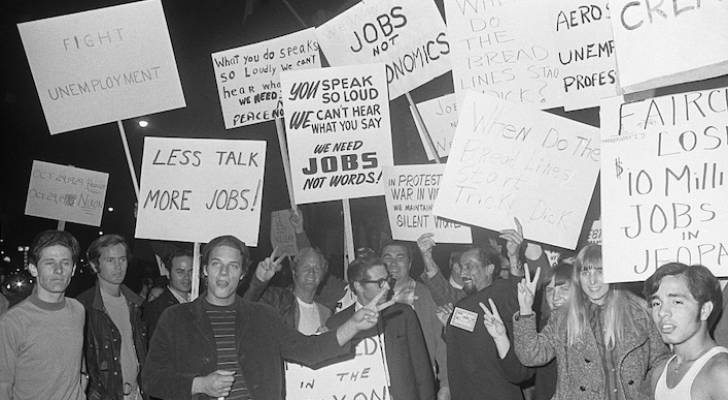
Most consumers are familiar with the concept of inflation — a broad increase in prices as purchasing power declines. But stagflation is a concept you may not have heard of.
Economists coined the term to describe a period of slow economic growth, high levels of unemployment and stubbornly high prices. During stagflation (or stagnant inflation), prices remain elevated while the economy remains in a slump.
And the recent fear is that new tariff policies will fuel a period of stagflation in the near term that could lead to a recession.
In a recent analysis of a March Federal Reserve meeting, RSM chief economist Joe Brusuelas said policymakers “implied mild stagflation ahead in the near term as growth slows and inflation increases,” according to Reuters. Brusuelas also noted the “pervasive uncertainty around the size and magnitude of the trade shock.”
Here’s why the fear may be a valid concern and what you may want to keep in mind when investing amid economic uncertainty.
The last time the U.S. had to deal with a prolonged period of stagflation was during the 1970s, when a large increase in oil prices triggered a series of suboptimal decisions around monetary policy and ultimately fueled a recession early on in the following decade.
Now, the U.S. economy is showing signs of “stagflation-lite,” the title of Brusuelas’ recent analysis, as a growing number of economists are projecting a slowdown in growth and an uptick in prices as tariff policies come to life.
Of course, it’s worth noting that unemployment is fairly low. February’s jobless rate was only 4.1%. By contrast, during the mid-1970s, it peaked at 9%. For this reason, economists aren’t necessarily predicting a repeat of the stagflation that occurred in the 1970s, but rather, a more mild version.
“I don’t see any reason to think that we’re looking at a replay of the ’70s or anything like that,” Federal Reserve Chair Jerome Powell said at a press conference after a recent central bank meeting, according to Reuters. “I wouldn’t say we’re in a situation that’s remotely comparable to that.”